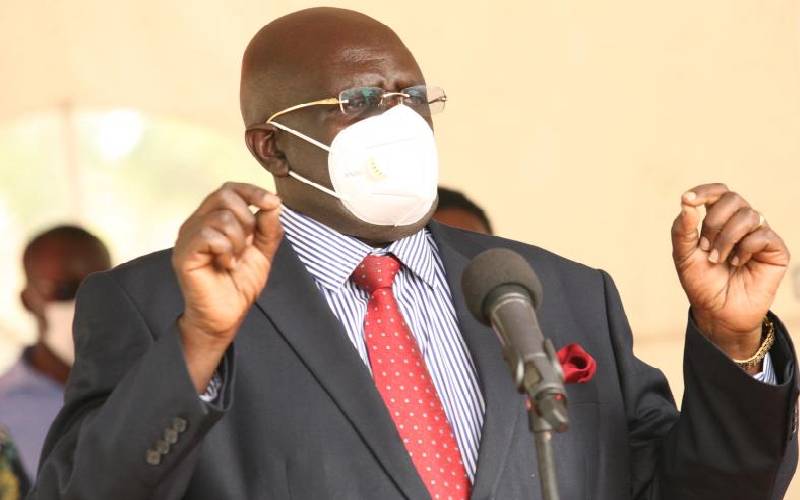×
The Standard e-Paper
Home To Bold Columnists

Education CS George Magoha in Kisumu on August 9, 2020. [Denish Ochieng/Standard]
The Government is ready to roll out community-based learning in primary and secondary schools across the country, Education Cabinet Secretary George Magoha has said.